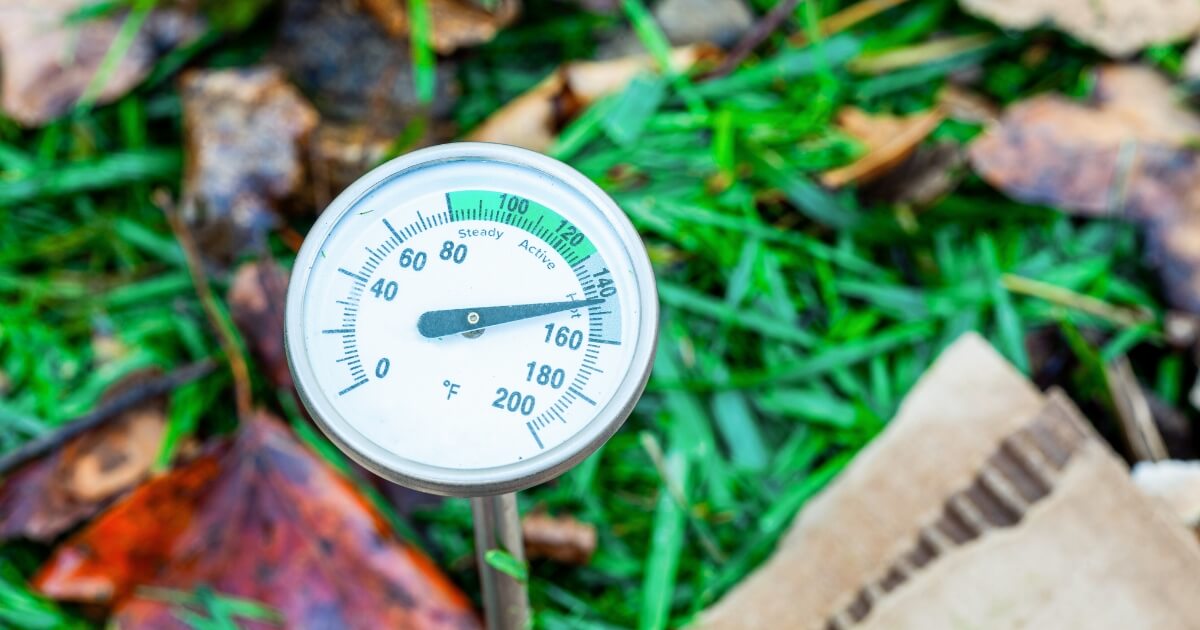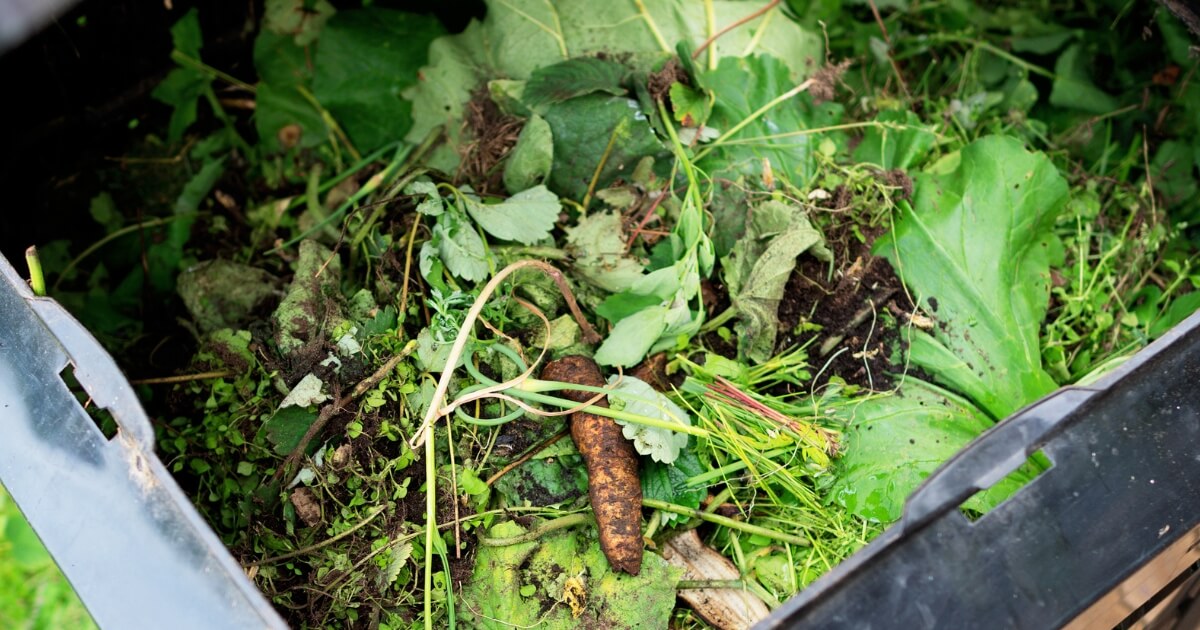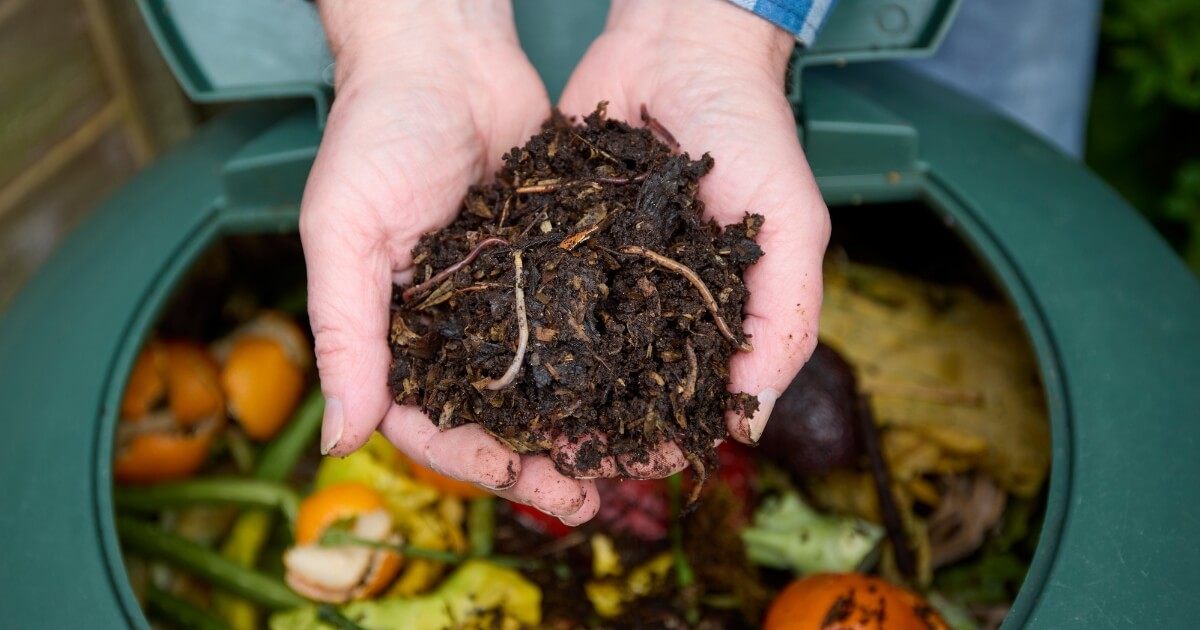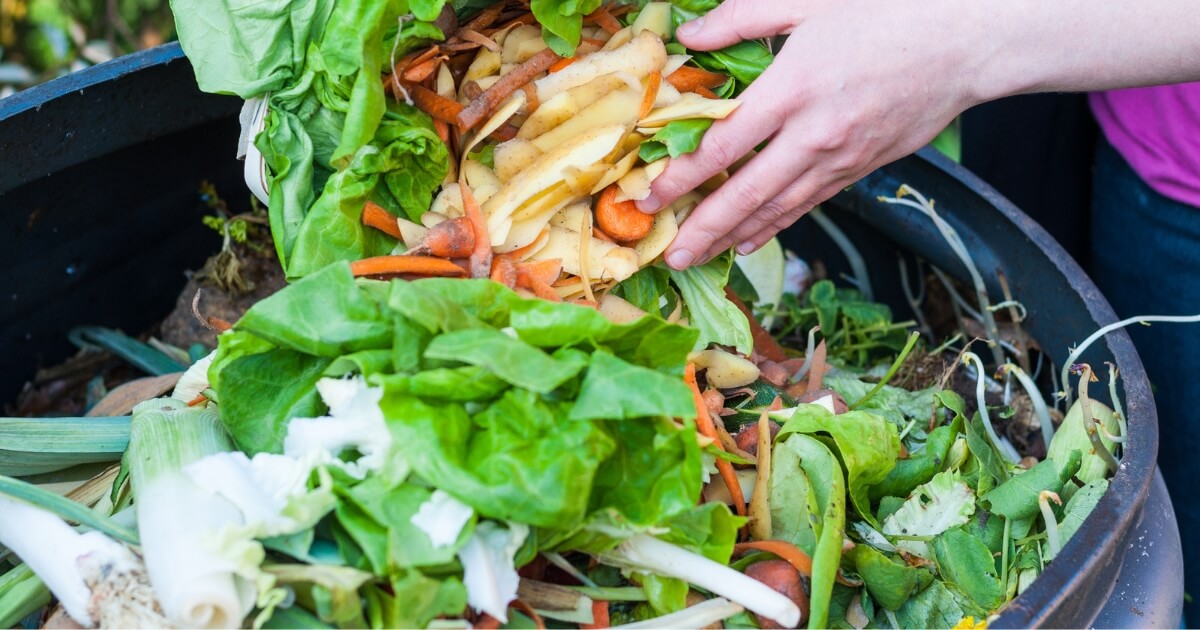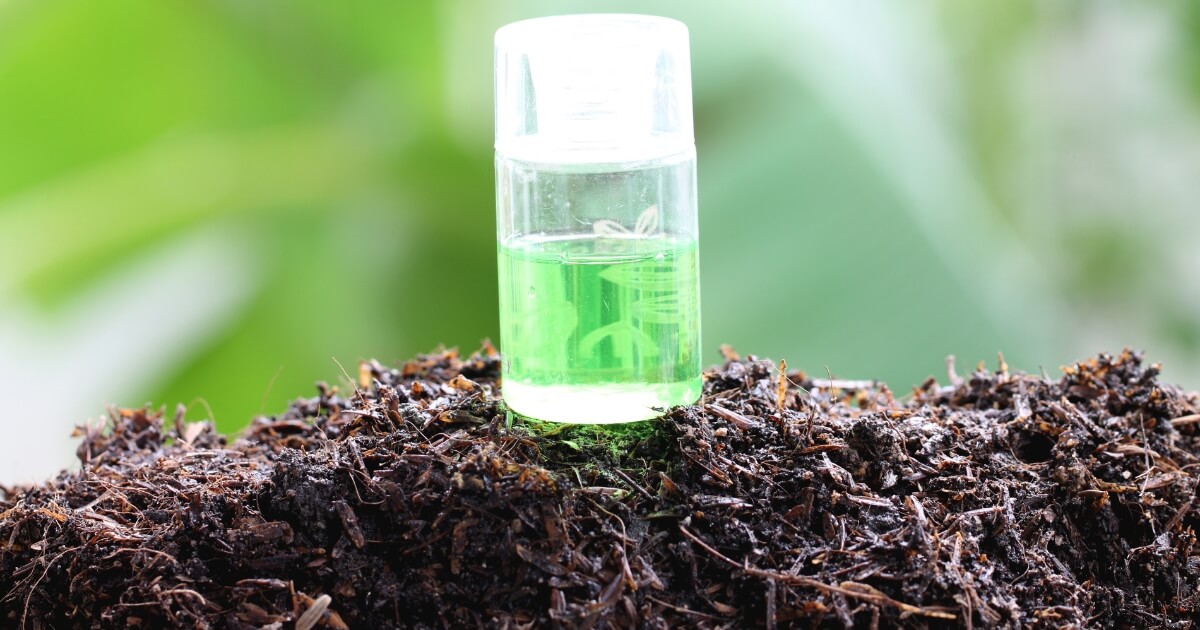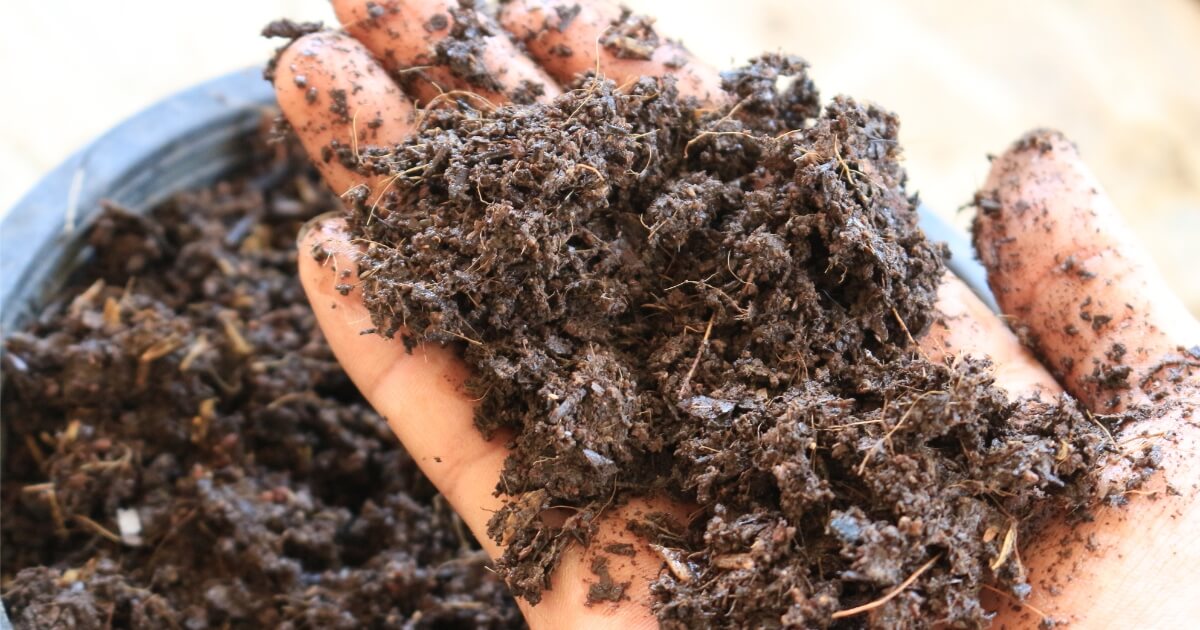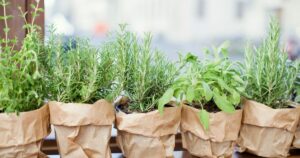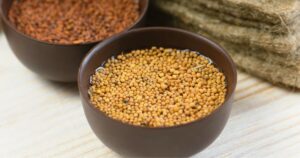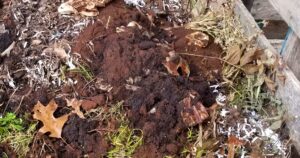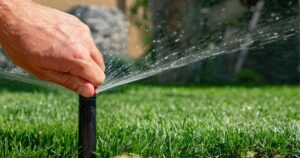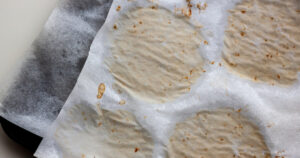Rhubarb is a popular crop for home gardeners, but there is an ongoing debate on whether you can compost the toxic rhubarb leaves.
So, can you compost rhubarb leaves?
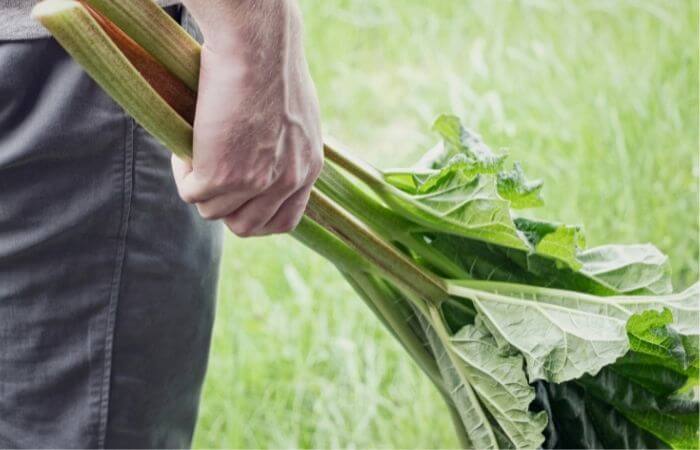
Yes, you can safely compost rhubarb leaves, and I tell you how in this guide. Once you finish reading, you’ll be ready to gather those rhubarb leaves and make a rich compost to feed all the plants in your garden!
Can Rhubarb Leaves Be Composted?
Yes, choosing to compost rhubarb leaves is perfectly safe. Rhubarb is a vegetable, even though most people prepare it in dishes more like a fruit, and will compost just as well as other types of garden scraps.
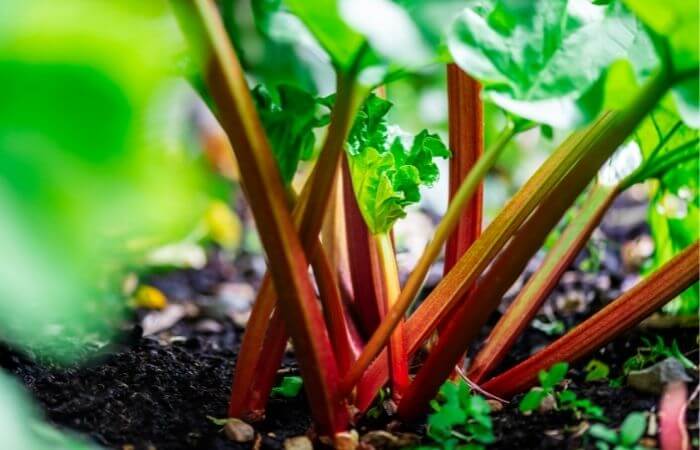
What confuses many who enjoy composting is that while you can eat rhubarb stalks, the leaves are poisonous to ingest because they contain large amounts of harmful toxins.
The compounds found within the rhubarb leaves can pose an issue if you allow pets or children to play in or nibble on compost full of fresh quantities of leaves, so always avoid this from happening. Other than that, the natural decomposition of the leaves happens fairly quickly, so the harmful compounds dilute enough to pose no ill effects.
But will those compounds remaining in the compost and hurt your plants when you spread them in your garden?
No, fully-processed compost made from even large quantities of rhubarb leaves will not retain levels of harmful compounds that render it dangerous to plants.
Is Rhubarb Acidic?
Rhubarb leaves are acidic. The stalks and leaves contain oxalic acid, which is a substance that can be corrosive and is toxic if you ingest it in large quantities.
Oxalic acid is a compound that rhubarb plants create as a defense mechanism. People safely eat common foods, such as Swiss chard and spinach, that contain this acid at low levels. Human bodies also produce trace amounts of this acid naturally.
There is a much smaller amount of oxalic acid in rhubarb stalks, which makes them safe to eat. The majority of the acid is in the leaves, which could reach toxic levels in birds, mammals, and some insects if they consume enormous amounts at one time.
Because oxalic acid is organic, it will decompose quickly once soil microbes start feasting. Earthworms also have bacteria within their digestive system that easily break down the acid.
Will The Acidity Of Rhubarb Leaves In Compost Affect Soil Ph?
Every batch of compost will deliver a slightly different pH level due to the different ingredients put into the pile, but most will fall between six and eight on the scale.
A batch of compost made up of strictly rhubarb leaves as the green ingredient will have enough acidity to lower soil pH, but not enough to cause concern.
Compost is a soil amendment, so mixing the material with ground soil will balance out the acidity.
Compost, by nature, is not fully decomposed when gardeners deem it “ready” for use. The final decomposition of compost while in your garden beds also neutralizes the acid levels over time.
Pros And Cons Of Rhubarb Leaves In Compost
Rhubarb leaves bring both good and bad aspects to your compost, such as:
Pros:
- Provides a nitrogen ingredient to balance carbon material in the composter
- Adds vitamin A, calcium, and potassium to the compost
- Brings moisture to the compost, which helps material break down faster
- Leaves break down quickly, and are a great energy source for microbes
- Environmentally-friendly way to discard of vegetable garden scraps
- Worms can safely eat them, so they are great for vermicomposters
Cons:
- Composting with large quantities can create a compost that is lower in pH
- You need to keep kids or pets away from compost with fresh leaves to avoid accidental ingestion that could cause sickness
The benefits of composting rhubarb leaves far outweighs the slight risk of accidental ingestion or pH issues, so there is no need to worry about adding them into your home composting system.
How Long Does It Take For Rhubarb Leaves To Decompose?
Rhubarb leaves will decompose quickly, just as other vegetable foliage does inside your composter or pile.
Expect to see them disappear in four to eight weeks if put into your composter whole. If you take the time to slice the leaves into smaller pieces, you may find they disappear in only two to three weeks.
The key to the fast decomposition of any nitrogen or carbon compost ingredients is making sure the ratio, temperature, moisture levels, and aeration levels are ideal.
To accomplish this, you need to tend to your pile often. Turn the compost every four to seven days, test the moisture level with a meter, and keep an eye on the internal temperature with a compost thermometer.
How To Compost Rhubarb Leaves
Rhubarb leaves are easy to compost by using these steps below:
Step 1: Chop up the leaves
Using a good knife or kitchen shears, chop up the leaves. While you can opt to add the leaves into the compost whole, the tough fibers inside will break down much faster if you cut them down.
Step 2: Balance the nitrogen to carbon ratio.
For every container of rhubarb leaves, add in about four parts of a carbon material such as shredded leaves, cardboard, or sawdust. Adjust the ingredient content to suit the needs of your compost at the time, so moisture levels are not too wet or dry.
Step 3: Mix it up
Mixing your compost ingredients often is the best way to hurry the process along. Turn the material every few days, so all the material works its way into the center of the pile, where all the microbe and heat action takes place.
Step 4: Maintain until completion
Once you have your rhubarb leaves processing, make sure you check moisture and heat levels regularly inside the compost. Doing so will reduce the chance of odors and help keep the fungi and bacteria happy, so the compost is complete faster.
In Summary
Growing rhubarb for delicious pies, bread, jams, and other treats is a gardening favorite. So, why toss rhubarb leaves in the trash when you can use them as a valuable ingredient to your composting system instead?
There is no reason you can’t add the leaves to your compost, and I hope the information in this guide dispels any fears you may have about doing so!
